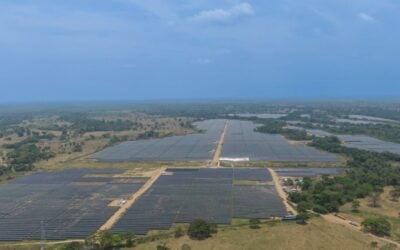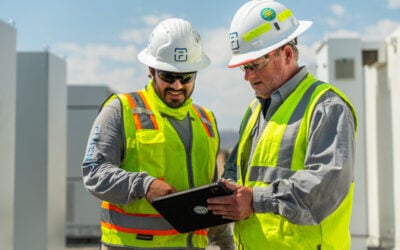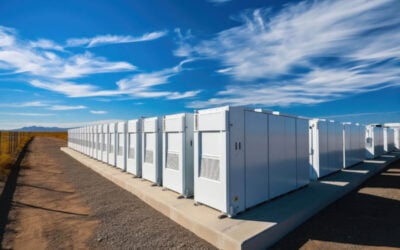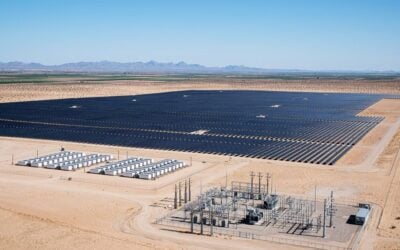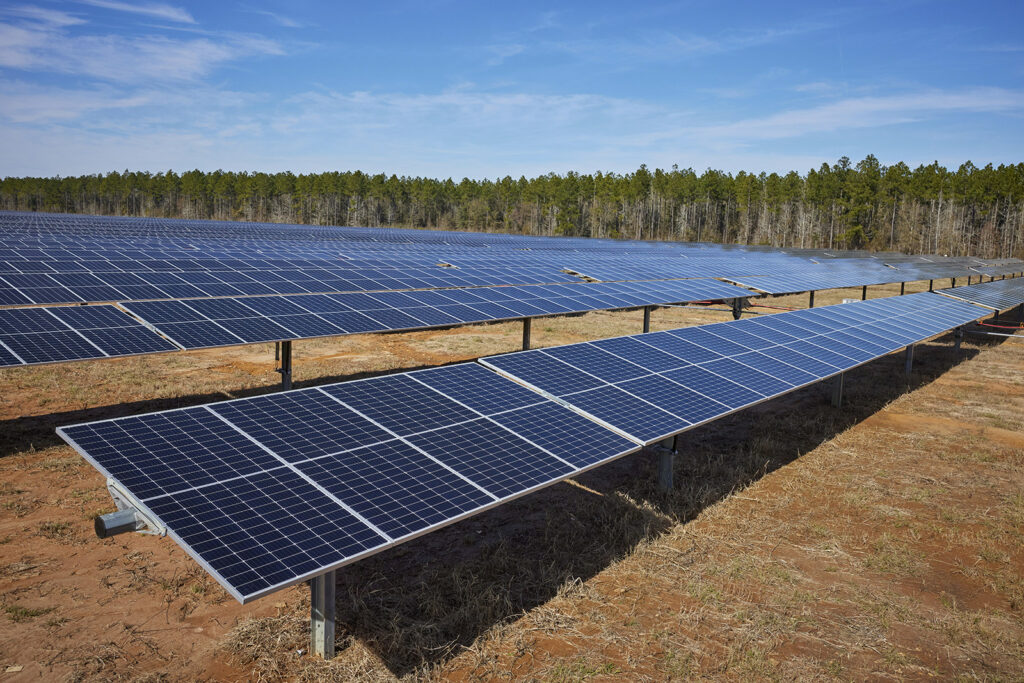
RWE has begun the operation of its Hickory Park project, a power plant combining 195.5MW of solar PV with 40MW/80MWh of battery storage in Georgia, US.
It is the European utility and power generation group’s largest solar-plus-storage project in the US and energy from it will be sold to utility Georgia Power through a 30-year power purchase agreement (PPA) signed in November 2019.
Enjoy 12 months of exclusive analysis
- Regular insight and analysis of the industry’s biggest developments
- In-depth interviews with the industry’s leading figures
- Annual digital subscription to the PV Tech Power journal
- Discounts on Solar Media’s portfolio of events, in-person and virtual
Construction began in late 2020, as reported by Energy-Storage.news at the time, on the site in Mitchell County.
RWE will operate and manage the 1,800-acre facility, selling energy as well as Renewable Energy Credits (RECs) to Georgia Power. The project had originally been scheduled for completion in late 2021.
The solar PV is directly integrated with the DC-coupled lithium-ion battery energy storage system (BESS), which was supplied by technology provider and energy storage system integrator Wärtsilä.
Wärtsilä has previously said the DC coupling makes Hickory Park a true hybrid resource – leveraging the battery storage to make the solar generation dispatchable and easier to integrate onto the local grid.
While it marks RWE’s biggest solar-plus-storage project in the US to date and its first solar plant in the state of Georgia, the group’s biggest battery project to date by nameplate output is a 60MW standalone BESS it has just brought online in Ireland.
Elsewhere in Europe, the company is currently constructing three much smaller solar-plus-storage projects in its home country, Germany that add up to about 45MW of PV and 20MWh of BESS, all sited at lignite coal mines RWE owns.
These were awarded government contracts for fixed payment alongside merchant fees they can earn on the market, in a so-called Innovation Tender scheme run by Germany’s federal utilities regulator, the Bundesneztagentur.
RWE has other big US solar-plus-storage projects in development including Big Star in Texas which is co-locating 200MW of solar PV with 80MW/120MWh of BESS.
In September last year, the group signed a 200MW/800MWh BESS supply deal with manufacturer LG Energy Solution for its US solar-plus-storage projects, which will be integrated with RWE’s own in-house developed energy management system (EMS).
For Georgia, a major centre for new lithium-ion battery production capacity largely aimed at the electric vehicle (EV) sector, it marks another step forward in battery storage deployment.
In a 2019 integrated resource plan (IRP) – the long-term strategy and planning documents that utilities present to regulators in US markets – Georgia Power requested the state Public Service Commission’s permission to own and operate 80MW of standalone BESS.
This was unanimously approved and the first 60MW/260MWh project in that portfolio then granted approval to proceed in 2020 from the Commission. Wärtsilä was awarded the EPC contract for that project, called Mossy Branch Battery Facility.
The utility issued a 1GW request for proposals (RfP) for renewables or renewables-plus-storage projects in November 2021, and then earlier this year request approval to own and operate 1GW of energy storage in its next IRP filing.
Georgia Power wants to retire all of its coal assets by 2035, including 12 generating units totalling more than 3,500MW of capacity by 2028 along the way.
The utility is seeking to replace that capacity with a mix of resources including 6,000MW of new renewable energy in addition to about 5,500MW of existing renewables capacity and signing 2,356MW of PPAs for natural gas over the next six years.


